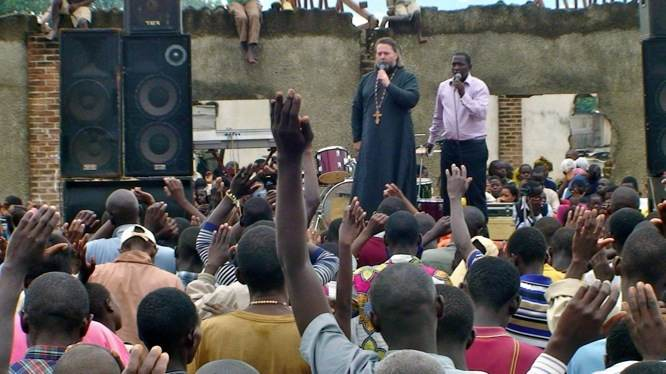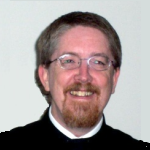
Deprecated: trim(): Passing null to parameter #1 ($string) of type string is deprecated in /home/aoiusa/public_html/wp-content/plugins/sexybookmarks/public.php on line 388
Deprecated: trim(): Passing null to parameter #1 ($string) of type string is deprecated in /home/aoiusa/public_html/wp-content/plugins/sexybookmarks/public.php on line 394
Deprecated: trim(): Passing null to parameter #1 ($string) of type string is deprecated in /home/aoiusa/public_html/wp-content/plugins/sexybookmarks/public.php on line 400
 Source: Catholic Education Resource Center | Chief Rabbi Lord Jonathan Sacks
Source: Catholic Education Resource Center | Chief Rabbi Lord Jonathan Sacks
Britain’s chief rabbi on the moral disintegration since the 1960s and how to rebuild.
It was the same city but it might have been a different planet. At the end of April, the eyes of the world were on London as a dashing prince and a radiant princess, William and Kate, rode in a horse-drawn carriage through streets lined with cheering crowds sharing a mood of joyous celebration. Less than four months later, the world was watching London again as hooded youths ran riot down high streets, smashing windows, looting shops, setting fire to cars, attacking passersby and throwing rocks at the police.
It looked like a scene from Cairo, Tunis or Tripoli earlier in the year. But this was no political uprising. People were breaking into shops and making off with clothes, shoes, electronic gadgets and flat-screen televisions. It was, as someone later called it, shopping with violence, consumerism run rampage, an explosion of lawlessness made possible by mobile phones as gangs discovered that by text messaging they could bring crowds onto the streets where they became, for a while, impossible to control.
Let us be clear. The numbers involved were relatively small. The lawkeepers vastly outnumbered the lawbreakers. People stepped in to rescue those attacked. Crowds appeared each morning to clear up the wreckage of the night before. Britain remains a decent, good and gracious society.
But the damage was real. Businesses were destroyed. People lost their homes. A 68-year-old man, attacked by a mob while trying to put out a fire, died. Three young men in Birmingham were killed in a hit-and-run attack. While it lasted, it was very frightening.
It took everyone by surprise. It should not have.
Britain is the latest country to pay the price for what happened half a century ago in one of the most radical transformations in the history of the West. In virtually every Western society in the 1960s there was a moral revolution, an abandonment of its entire traditional ethic of self-restraint. All you need, sang the Beatles, is love. The Judeo-Christian moral code was jettisoned. In its place came: whatever works for you. The Ten Commandments were rewritten as the Ten Creative Suggestions. Or as Allan Bloom put it in “The Closing of the American Mind”: “I am the Lord Your God: Relax!”
You do not have to be a Victorian sentimentalist to realize that something has gone badly wrong since. In Britain today, more than 40% of children are born outside marriage. This has led to new forms of child poverty that serious government spending has failed to cure. In 2007, a Unicef report found that Britain’s children are the unhappiest in the world. The 2011 riots are one result. But there are others.
Whole communities are growing up without fathers or male role models. Bringing up a family in the best of circumstances is not easy. To try to do it by placing the entire burden on women – 91% of single-parent families in Britain are headed by the mother, according to census data – is practically absurd and morally indefensible. By the time boys are in their early teens they are physically stronger than their mothers. Having no fathers, they are socialized in gangs. No one can control them: not parents, teachers or even the local police. There are areas in Britain’s major cities that have been no-go areas for years. Crime is rampant. So are drugs. It is a recipe for violence and despair.
That is the problem. At first it seemed as if the riots were almost random with no basis in class or race. As the perpetrators have come to court, a different picture has emerged. Of those charged, 60% had a previous criminal record, and 25% belonged to gangs.
This was the bursting of a dam of potential trouble that has been building for years. The collapse of families and communities leaves in its wake unsocialized young people, deprived of parental care, who on average – and yes, there are exceptions – do worse than their peers at school, are more susceptible to drug and alcohol abuse, less likely to find stable employment and more likely to land up in jail.
The truth is, it is not their fault. They are the victims of the tsunami of wishful thinking that washed across the West saying that you can have sex without the responsibility of marriage, children without the responsibility of parenthood, social order without the responsibility of citizenship, liberty without the responsibility of morality and self-esteem without the responsibility of work and earned achievement.
What has happened morally in the West is what has happened financially as well. Good and otherwise sensible people were persuaded that you could spend more than you earn, incur debt at unprecedented levels and consume the world’s resources without thinking about who will pay the bill and when. It has been the culture of the free lunch in a world where there are no free lunches.
We have been spending our moral capital with the same reckless abandon that we have been spending our financial capital. Freud was right. The precondition of civilization is the ability to defer the gratification of instinct. And even Freud, who disliked religion and called it the “obsessional neurosis” of humankind, realized that it was the Judeo-Christian ethic that trained people to control their appetites.
There are large parts of Britain, Europe and even the United States where religion is a thing of the past and there is no counter-voice to the culture of buy it, spend it, wear it, flaunt it, because you’re worth it. The message is that morality is passé, conscience is for wimps, and the single overriding command is “Thou shalt not be found out.”
Has this happened before, and is there a way back? The answer to both questions is in the affirmative. In the 1820s, in Britain and America, a similar phenomenon occurred. People were moving from villages to cities. Families were disrupted. Young people were separated from their parents and no longer under their control. Alcohol consumption rose dramatically. So did violence. In the 1820s it was unsafe to walk the streets of London because of pickpockets by day and “unruly ruffians” by night.
What happened over the next 30 years was a massive shift in public opinion. There was an unprecedented growth in charities, friendly societies, working men’s institutes, temperance groups, church and synagogue associations, Sunday schools, YMCA buildings and moral campaigns of every shape and size, fighting slavery or child labor or inhuman working conditions. The common factor was their focus on the building of moral character, self-discipline, willpower and personal responsibility. It worked. Within a single generation, crime rates came down and social order was restored. What was achieved was nothing less than the re-moralization of society – much of it driven by religion.
It was this that the young French aristocrat Alexis de Tocqueville saw on his visit to America in 1831. It astonished him. Tocqueville was expecting to see, in the land that had enacted the constitutional separation of church and state, a secular society. To his amazement he found something completely different: a secular state, to be sure, but also a society in which religion was, he said, the first of its political (we would now say “civil”) institutions. It did three things he saw as essential. It strengthened the family. It taught morality. And it encouraged active citizenship.
Nearly 200 years later, the Tocqueville of our time, Harvard sociologist Robert Putnam, made the same discovery. Mr. Putnam is famous for his diagnosis of the breakdown of social capital he called “bowling alone.” More people were going bowling, but fewer were joining teams. It was a symbol of the loss of community in an age of rampant individualism. That was the bad news.
At the end of 2010, he published the good news. Social capital, he wrote in “American Grace,” has not disappeared. It is alive and well and can be found in churches, synagogues and other places of worship. Religious people, he discovered, make better neighbors and citizens. They are more likely to give to charity, volunteer, assist a homeless person, donate blood, spend time with someone feeling depressed, offer a seat to a stranger, help someone find a job and take part in local civic life. Affiliation to a religious community is the best predictor of altruism and empathy: better than education, age, income, gender or race.
Much can and must be done by governments, but they cannot of themselves change lives. Governments cannot make marriages or turn feckless individuals into responsible citizens. That needs another kind of change agent. Alexis de Tocqueville saw it then, Robert Putnam is saying it now. It needs religion: not as doctrine but as a shaper of behavior, a tutor in morality, an ongoing seminar in self-restraint and pursuit of the common good.
One of our great British exports to America, Harvard historian Niall Ferguson, has a fascinating passage in his recent book “Civilization,” in which he asks whether the West can maintain its primacy on the world stage or if it is a civilization in decline.
He quotes a member of the Chinese Academy of Social Sciences, tasked with finding out what gave the West its dominance. He said: At first we thought it was your guns. Then we thought it was your political system, democracy. Then we said it was your economic system, capitalism. But for the last 20 years, we have known that it was your religion.
It was the Judeo-Christian heritage that gave the West its restless pursuit of a tomorrow that would be better than today. The Chinese have learned the lesson. Fifty years after Chairman Mao declared China a religion-free zone, there are now more Chinese Christians than there are members of the Communist Party.
China has learned the lesson. The question is: Will we?







